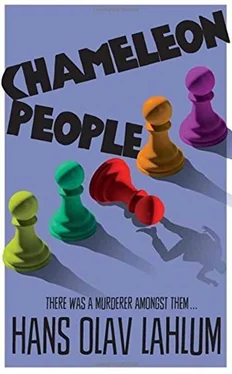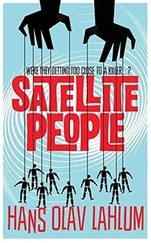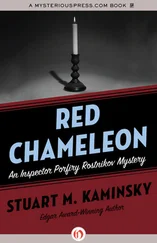The man was not hard to find either. Hauk Rebne Westgaard was standing talking to two other men in front of the house when I drove up. It was very obvious who he was, thanks to his height, profile and clothes. Without reading very much more into it, I could see that he was the only gentleman there.
The description I had been given was very fitting. Hauk Rebne Westgaard was at least six feet tall, with unusually sharp features and a clean-shaven face, raven hair, a slim build and graceful movements; he could as easily have been forty-five as sixty-five. His handshake was strong and his voice was friendly when he said: ‘Welcome.’ But he did not smile, and walked into the house without saying another word.
Hauk Rebne Westgaard’s living room was large and tidy, but in terms of the furnishing and decor, it was like taking a step back in time to the early interwar period. With the possible exception of a couple of guns on the wall and some of the trophies on the top shelves, it looked as though nothing here was from after 1945. I found myself wondering whether my host’s internal life had remained equally untouched since 1932.
Out loud, I asked whether he lived alone or had any family. He replied: ‘I have three farmhands who live on the farm with their families, but I live on my own in the house. My parents died long ago, and my only sibling is a younger sister who also has her own house on the farm. I have never married and do not have the pleasure of my own children.’
‘But you were once in love and had a girlfriend, whom you lost – unexpectedly,’ I said.
He gave a strangely determined and abrupt nod. It was as though his sharp chin cleaved the air in two.
‘I understand that you are well acquainted with the events of 1932. Yes, I once had a girlfriend whom I loved very much and lost very unexpectedly. I have carried on with my life, done what I should and could on the farm and in the community, and I’ve managed well. But I still wonder about what happened, and what my life might have been like had it not occurred. And that I will never know. But I would be very grateful if you could solve the mystery.’
His voice was still friendly, but as he spoke his hawk-like eyes bore into me.
I felt the pressure mounting. So I swiftly replied that I would do my best, but that I first needed to hear his version of the events and how he had experienced them.
‘Eva and I had not been together for very long, just four months. And we were very different. She was an irrepressible optimist with a lust for life and had grown up without a care in the world. Whereas the situation here at home had left its mark on me and I was far more serious. But we got on very well together all the same, and in the days before the trip to Oslo had even talked about getting engaged. I was never one for parties really and thought I was the luckiest man in the world to have found such a beautiful and charming girlfriend. I could see that other men looked at me with envy. And I thought to myself many a time that it was too good to last, but I had no idea that it would end as tragically as it did.’
‘And in addition, she was rich,’ I said, tentatively.
Hauk Rebne Westgaard gave another of his sharp nods. ‘That was not important to me. I would have wanted Eva even if she was the daughter of a poor farmhand, but of course I knew full well that she was heir to land and property worth millions. I both saw and heard that it was important to other young men, from families that were often far richer than my own. The wealthy farmers down here used to joke that there were no engagements in Vestfold, only mergers.’
He smiled fleetingly when he said this. But the smile disappeared as soon as I asked if he had known that Per Johan Fredriksen had shown some interest in his girlfriend.
‘Yes. He paid a lot of attention to my girlfriend, and Kjell Arne Ramdal showed a lot of interest in both my girlfriend and Per Johan’s fiancée. So the atmosphere on the way into the capital and at the hotel was rather tense. I could feel that a drama was brewing, but the form it then took came as a shock. On the surface, Eva was the most carefree and relaxed of us all. She lived to be adored. We had discussed it and I was happy for her to be the centre of attention.’
I noted that jealousy could have been a possible motive for Hauk Rebne Westgaard. I then asked him what he believed happened.
‘It was not epilepsy that killed Eva, I am almost certain of that. I had been to the doctor with her a few days before. He had assured her that epilepsy was something she would die with, but not from. Otherwise she was as fit as a fiddle with no sign of any illness. It seems just as unlikely to me that she committed suicide. First of all, she had been in a remarkably good mood all spring, and still was only a few hours before. Second, I don’t understand how she committed suicide, if she did. I was with her when she packed and did not see medicine of any sort either then or later in the hotel room. I smelt her lips after she had died, and they did not smell of anything. Even though I cannot categorically dismiss the possibility that she committed suicide or died as a result of her illness, I have always believed that she was murdered. But how she was killed, why she was killed and by whom, remains as much of a mystery to me now, forty years on, as then. And I would be so grateful if you could tell me.’
There was a faint spark in the eyes of the man opposite me when he said this. Despite his control, he suddenly scared me a little, with the feeling only enhanced by all the guns and trophies on the wall.
I said that I was not able to tell him now, but that I would do my utmost to find out.
‘I thank you for that. It’s more than can be said of the police in 1932. They danced to her father’s tune. He was a very conservative and powerful old man who was less interested in finding out the truth than in hiding the potential scandal a suicide would have entailed. As her young boyfriend, and with no contacts in Oslo, I had no rights whatsoever and was ignored when I tried to support her sister’s demands for an autopsy. And, likewise, when I informed them that it was clear that another person had been in her room in the hour or two before she died, and also in her bed.’
Hauk Rebne Westgaard’s hard and defiant eyes pierced me to the core when he said this. He replied swiftly and without hesitation when I asked him how he could be so sure of that.
‘I was the first person into her room when we all went up. I immediately noticed that the bed, which had been made up earlier in the day, was now crumpled. Eva was full of energy and as good as never slept in the afternoons. She may, of course, have done so that day, but there were also three black hairs on her pillow. Eva had blonde hair, so they were clearly not hers. The police said they were unable to establish who the hair came from. They examined the bed as soon as they were told, but found no evidence of sexual activity and suggested that the hairs could have got there by all manner of ways that might not be directly linked to her death. But I can still only think of one plausible explanation, and that is that there was a dark-haired man in her room – and bed – only hours before she died.’
He said this in a very quiet voice, almost a whisper – which I could well understand. If his story was true, Hauk Rebne Westgaard had lived for the past forty years not only with the uncertainty of how his girlfriend had died, but also with the question of who she had been unfaithful with beforehand.
Hauk Rebne Westgaard’s still-black hair was right in front of my very eyes as we sat there looking at each other. So I cautiously asked if those black hairs might not be his own. He nodded very firmly to this and then spoke very fast.
Читать дальше












